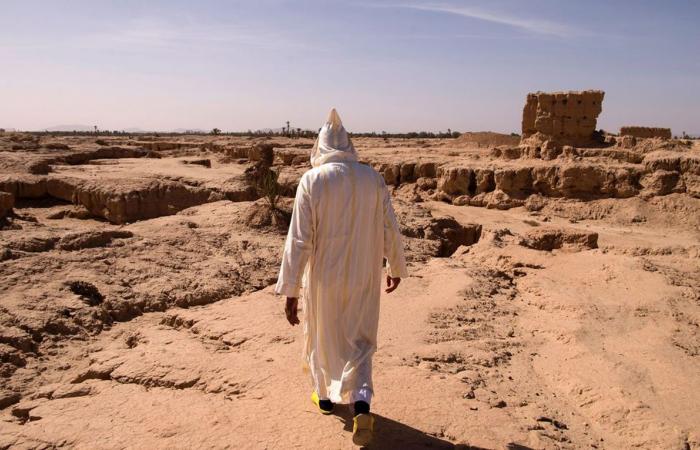Two years of drought have drained reservoirs in southern Morocco, threatening crops the region relies on and leading to nightly cuts in tap water for an area that is home to a million people.
In a country that relies on farming for two jobs in five and 14 percent of its gross domestic product (GDP), the problems caused by increasingly erratic rainfall and the depletion of groundwater are growing every year.
In the rich citrus plantations of El-Guerdan, stretching eastward from the southern city of Agadir, more than half of farmers rely on two dams in the mountains of Aoulouz, 126 km away, to irrigate their trees.
However, that water has been diverted to the tourist hub of Agadir, where mains water has been cut to residential areas every night since Oct. 3 to ensure taps in households did not run entirely dry.
“The priority should go to drinking water,” Agriculture Minister Aziz Akhannouch said in parliament last week.
In El-Guerdan, Youssef Jebha’s crop of clementine oranges has been compromised by reduced water supply, he said, which affects both the quality of fruit and the size of the harvest.
“The available ground water is barely enough to keep the trees alive,” said Jebha, who is head of a regional farmers’ association.
“Saving Agadir should not be at the expense of El-Guerdan farmers,” he added, speaking by phone.
‘We hope for rain’
El-Guerdan is not alone in facing drought. Morocco’s harvest of cereals this year was less than half that of 2019, meaning hundreds of millions of dollars of extra import costs.
Despite lower production, Moroccan exports of fresh produce have risen this year by 8 percent.
Critics of the government’s agricultural policy say such sales are tantamount to exporting water itself, given the crops use up so many resources.
A report by Morocco’s social and environmental council, an official advisory body, warned that four-fifths of the country’s water resources could vanish over the next 25 years.
It also warned of the risks to social peace due to water scarcity. In 2017, 23 people were arrested after protests over water shortages in the southeastern city of Zagora.
In January the government said it would spend $12 billion on boosting water supply over the next seven years by building new dams and desalination plants.
One $480 million plant, with a daily capacity of 400,000 cubic meters, is expected to start pumping in March, with the water divided between residential areas and farms.
Until then, “We hope for rain,” the agriculture minister said in parliament.
In El-Guerdan, the farmers are digging for water. A new well costs $20,000-30,000. However, “there is no guarantee water can be found due to the depletion of ground reserves,” said Ahmed Bounaama, another farmer.







